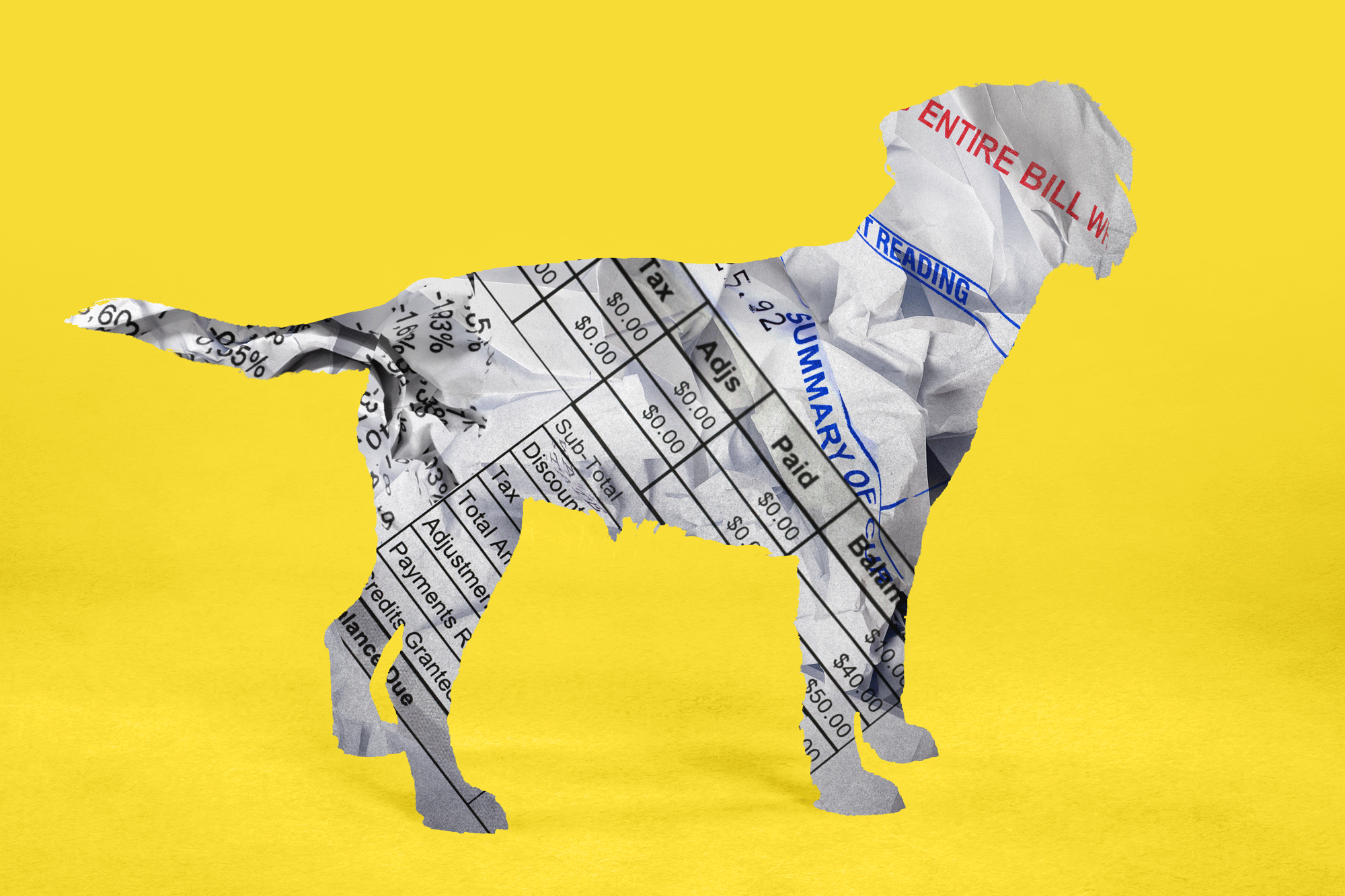Op-Ed: How much is too much to spend on a sick pet?
Recently I noticed that J.J., our 12-year-old, black-and-white-spotted mutt, was a little too big around the belly — not in a pregnant way, in a weird way. At the animal hospital, the veterinarian had the reassuring calm of a woman who had delivered a lot of bad news. She said we had to run some “simple tests,” costing roughly $1,000.
For the first time, I had to pause before saying yes to a veterinary procedure. I’d spent in the $100 range plenty of times: vaccinations, medicines for obscure animal-kingdom ailments, stitches after a disagreement with a dog down the street. But this was tuition money.
I thought about J.J.’s life so far — a simple, unremarkable dog’s life. She had not led any lost travelers out of the woods to safety. She had never trekked through the snow with a barrel of brandy around her neck. She had sniffed out no fugitives.
J.J.’s skills are modest, homely ones. She makes a racket when a stranger comes to the door, although she won’t get off her sofa, if it comes to that. She is a sofa hound, and her principal interest is guarding not the house, but her love seat.
Yet J.J. is a world-champion spooner, and at night, if you are cold, J.J. will nestle into your body, like a delectable canine croissant. And J.J. and I, we’ve been through some things together. Sitting at my feet, keeping me warm, keeping me sane, she helped me write a couple of books and hundreds of columns about God, religion, life — the Big Questions. I should have figured that my first encounter with rationed care, big medical bills and end-of-life decisions would come courtesy of my furry 40-pound friend.
Somewhat reluctantly, I told the vet to go ahead. The bill came to $1,023.76, and it came with bad news: something about a tumor, her liver, the vena cava.
At that point, I had another decision to make. I could spend several more thousand dollars for surgery — and no guarantee of success — or I could take J.J. home and make her as comfortable as possible. I chose the latter.
“How long will she have?” I asked.
“She could begin to decline next week,” the vet said, “or she could have a while longer. If I had to guess, I’d say six months.”
Amazing the places your mind goes when you’re driving home your dying dog. I had put a price on what my dog was worth: a thousand for the diagnosis, but not a few thousand more for a reprieve.
According to some philosophers, I’d already crossed an ethical line in paying for those “simple tests.” While the psychologist Hal Herzog has written that spending “$10,000 on chemotherapy for your beloved golden retriever is no more unethical than spending it on a two-week vacation in Tuscany,” utilitarians, like Peter Singer, would caution that your money would do more good in Oxfam’s coffers than in a pensione. I would never meet the children who went without life-saving immunizations, or mosquito nets, because I had spent money on J.J. rather than international aid.
On the other hand, many philosophers have argued that we have reason to favor our close friends and family members, to give them priority in our hierarchy of obligations. If I am justified in favoring my wife, or my children, then why not a beloved pet? Followers of Aristotle’s virtue ethics might point out that practicing kindness to animals may help us learn kindness to people. Selflessness and sacrifice are muscles that need exercise. By that logic, maybe I should have gone further and considered surgery for J.J.
All my feelings are contingent, I know. In another time or culture, I might revere insects rather than floppy-eared hounds. If I believed in heaven, I’d worry about meeting the mother of a specific child who would have been saved by the money I spent on J.J.’s diagnosis, had I donated it to charity instead.
Ultimately, I reacted to my dog’s illness not too differently from how most of us react to the illnesses of people we love. We spend a certain amount of money without thinking twice. At a certain point, we wonder if we need to just let go. If the diagnosis sounds terminal, and the patient is already relatively old, that can simplify matters. Of course, it also simplifies matters if the patient is a dog, and one without pet health insurance (such a thing exists). I have human mouths to feed, and as much as I love J.J., people’s needs come first.
With our family dog, it made sense to pay for a diagnosis, but not for life-extending care. We won’t try to keep J.J. alive, but at least we know we’ll have time for a decent goodbye. For a few more months, anyway, I’ll pet her swollen belly. She’s weakening, and has a hard time hopping on the bed. Not as much snuggling any more. But she still barks when she hears a stranger at the door, still glares from her sofa. She doesn’t get off the sofa, but then again, she never did.
Mark Oppenheimer, a contributing writer to Opinion, is the author of three books, most recently “Wisenheimer: A Childhood Subject to Debate.” He is the host of the podcast Unorthodox.
Follow the Opinion section on Twitter @latimesopinion and Facebook
MORE FROM OPINION
Is Obama a master of trolling?
Go ahead, curse in front of your kids
It’s OK to sleep next to your infant child. In fact, it’s beneficial
More to Read
A cure for the common opinion
Get thought-provoking perspectives with our weekly newsletter.
You may occasionally receive promotional content from the Los Angeles Times.










